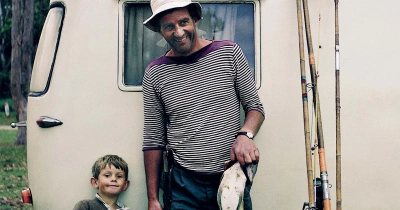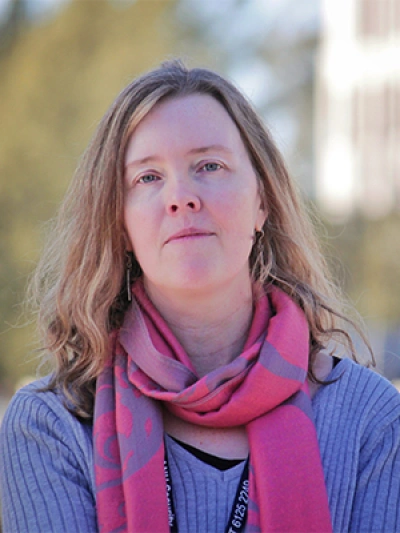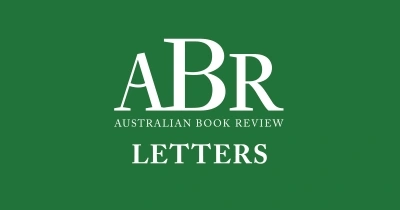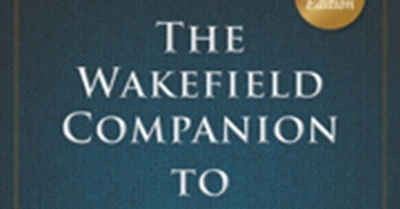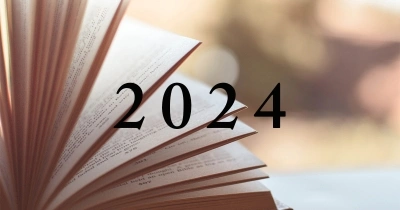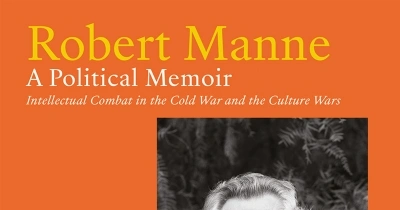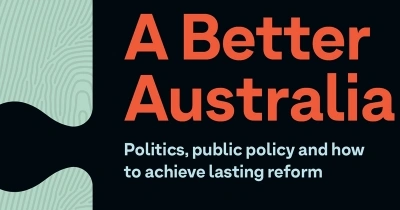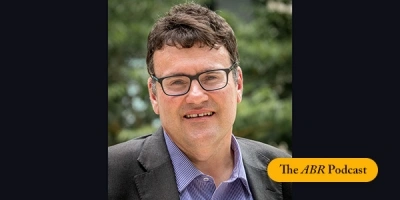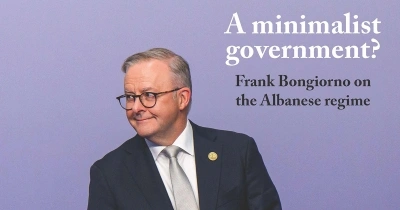Frank Bongiorno
Fathering: An Australian history by Alistair Thomson, John Murphy, Kate Murphy, and Jonny Bell, with Jill Barnard
We have had histories of Australian motherhood for decades. Fathers feature – sometimes as villains – in some of our best loved fiction: D’Arcy Niland’s The Shiralee (1955), George Johnston’s My Brother Jack (1964), and Don Charlwood’s All the Green Year (1965) spring to mind. Rounded portraits of fathers have figured in memoir and autobiography. Examples by Germaine Greer, Manning Clark, Raimond Gaita, and Biff Ward stand out. But not so in works of history, where there is a strange silence.
... (read more)The story of our language is the story of us
The proposed abolition of the Australian National Dictionary Centre represents a significant retreat from the Australian National University’s long-standing commitment to supporting a national public culture. This should alarm all of us, not least the Australian taxpayer who contributes $220 million a year – received by no other Australian university – so that the ANU can conduct significant research ‘supporting the development of Australia’s national unity and identity, including by improving Australia’s understanding of itself and the history and culture of its Indigenous peoples, its Asia-Pacific neighbours, and its place in the international community’.
... (read more)When I think of Peter Rose’s legacy and his immense contributions to Australian letters as Editor of Australian Book Review, there are manifold achievements I might highlight. Peter has wholly transformed the magazine’s ambitions and horizons over his tenure, elevating ABR into an indispensable, world-class publication offering outstanding commentary, criticism, creative work, and coverage of the performing arts. He has shaped the national conversation in infinite ways, offering our best minds scope to debate the pressing issues of our times in complex, nuanced exchanges that are vanishingly rare elsewhere. He has served as a distinguished and tireless public advocate for the value of criticism, the arts, and the humanities, and has done so much to advocate for writers and writing, building prizes, fellowships, and other initiatives that continue to create vital opportunities and recognition for writers today. More quietly but no less diligently, he has also worked tirelessly to protect and preserve ABR as a jewel of Australian literature for generations to come.
... (read more)The Wakefield Companion
Dear Editor,
Bob Ellis’s disappointment with the new edition of The Wakefield Companion to South Australian History, reviewed by Frank Bongiorno (ABR, April 2025), is naturally disappointing to me as general editor. But in justice to the contributors, Aboriginal and non-Aboriginal, his claim that our work deals largely with ‘European items of interest and Eastern European [sic] artists’ is simply puzzling. This especially when the first eleven articles range from ‘Aboriginal −European Frontier Conflict’ through ‘Aboriginal Histories’ and ‘Aboriginal Land Rights’ (including a whole paragraph on native title) to ‘Aborigines Protection Board’.
... (read more)The Wakefield Companion to South Australian History: Second Edition edited by Wilfrid Prest
The Wakefield Companion to South Australian History announced itself in 2001 as ‘a landmark publication, the first such work of reference for any Australian state or territory’. This new edition, which adds entries, updates others, and lands with a thump at almost 200 pages more than the previous volume, is especially timely in the wake of the Covid-19 pandemic, which magnified awareness of the differences between the histories and cultures of the Australian states.
... (read more)A Political Memoir: Intellectual combat in the Cold War and the culture wars by Robert Manne
Raimond Gaita is quoted in his close friend Robert Manne’s new memoir as saying that a ‘dispassionate judgement is not one which is uninformed by feeling, but one which is undistorted by feeling’. That distinction points to one of the many attractive qualities of A Political Memoir: Intellectual combat in the Cold War and the culture wars.
... (read more)A Better Australia: Politics, public policy and how to achieve lasting reform by John Brumby, Scott Hamilton, and Stuart Kells
It is a sign of the times that A Better Australia: Politics, public policy and how to achieve lasting reform begins with a discussion of climate and energy policy. No policy field better illustrates the deficiencies in Australia’s politics over the past generation. It is a tale, as one of the book’s authors, John Brumby, reminds us, of avoidable failure and lost opportunities, as the issue was subjected to the narrower, more immediate incentives offered by partisanship and opportunism.
... (read more)In this week’s ABR Podcast, Frank Bongiorno assesses the Albanese government, which has recently completed the first half of its first term in office. Frank Bongiorno is Professor of History at the Australian National University, President of the Australian Historical Association, and the author of books including Dreamers and Schemers: A political history of Australia. Listen to Frank Bongiorno’s ‘‘‘Thin labourism” How is the Albanese government travelling?’, published in the April issue of ABR.
... (read more)The Journal of Australian Political Economy (JAPE) recently published a special issue to mark the (presumed) halfway point of the Albanese Labor government. There was an editorial and nineteen articles. As you would expect, the verdict was mixed. The most striking thing to me, however, was that the authors had enough material to work with. A similar exercise for the Abbott and Morrison governments would have produced the problem faced by Old Mother Hubbard. The Turnbull government might just have provided her poor doggy with a bone, but one without much meat on it.
... (read more)

